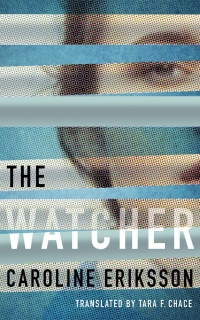Whiskey by Bruce Holbert
 Friday, September 28, 2018 at 7:44AM
Friday, September 28, 2018 at 7:44AM 
Published by Farrar, Straus & Giroux/MCD on March 13, 2018
Most chapters in Whiskey are divided into three sections. The sections titled Exodus are set in the present (1991) and bring us to the story’s end. The sections titled Genesis begin in the 1950s and tell the story of Pork White’s family. The Lamentations sections pick up the story of Pork’s two sons during the 1980s. The typical order within each chapter is Exodus - Lamentations - Genesis, so the story is told both backwards (within each chapter) and sideways (as it moves from chapter to chapter). Whiskey is like a winding river that flows through and connects the parts of the story.
When Whiskey begins, a lawyer walks into a bar and hands divorce papers to Andre White, who promptly burns them. Several drinks later, Andre and his brother Smoker have enlisted the lawyer’s armed assistance in a search for Smoker’s daughter Bird, who has been spirited away by Smoker’s wife. A chance encounter with a bear delays that mission before the bear joins it.
Andre and Smoker were born after Pork White, a Native American, fell in love with a white high school girl named Peg who used Pork to carry out her agenda of retribution. The relationship was a wrong turn in the lives of both of its participants. The reader learns how life turned out for Peg in one of the Lamentations sections of the book.
The brothers are distinctly different. Bruce Holbert portrays Smoker as “sharp-featured and rakish; women tripped over one another to be his fool. He had a knack for appearing to have feelings and the prospect of excavating his heart kept them on.” Smoker has no money and clearly never will, but he listens when women talk and for that they adore him.
Andre isn’t as attractive but he has more intellect, or at least more interest in using his intellect, than Smoker. In 1983, when he met Claire, Andre was a math teacher who still managed to remain sober during the day. In the evening, he stalked Claire until she caught him at it and commenced a romance. Given the way the story begins, the romance has clearly fizzled by the Exodus timeframe.
The themes in Whiskey are familiar. They include the impact of growing up in a dysfunctional family, brothers bonding as protection from woeful parenting, and sibling betrayal. Alcohol and violence pervade the story — alcohol consigns painful memories to oblivion (“If knowledge was the apple the serpent proffered Eve, then memory was the first bitter harvest outside Eden’s gates, and angels guard the tree of life, which bears the sweet fruit of amnesia we cannot reach”) — but Holbert softens the drunken violence with moments of tenderness, compassion, and unexpected humor. Just how Bird will turn out, raised with love but surrounded by cruelty, is an open question.
The brothers’ interaction provides a steady supply of surprises and revelations. Even when their relationship is at its worst, their connection is a harbor against a world for which they both seem unsuited. They have been (in Smoker’s words) “gutshot since birth.” They see living as a slow and sometimes agonizing process of dying.
Holbert conveys a strong sense of realism with the detailed setting and distinctive personalities that he gives to each character. His prose combines grace with grit. The rhythm of the brothers’ dialog is uniquely their own, cementing their relationship apart from everyone else in the world. Whiskey is worth reading just for the brothers’ far-ranging conversations. And while the novel as a whole is dark and tragic, it is also worth reading as a powerful reminder that people who endure dismal and violent lives are also capable of love, honesty, gentleness, and insight into the human condition that their more privileged neighbors may never develop.
RECOMMENDED



